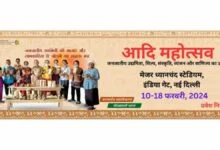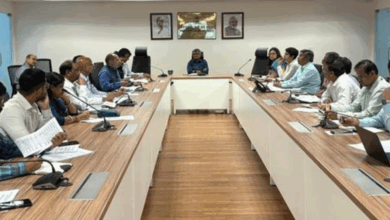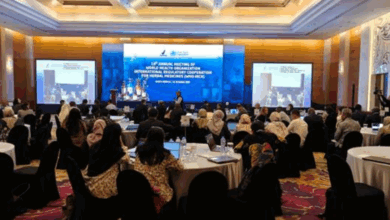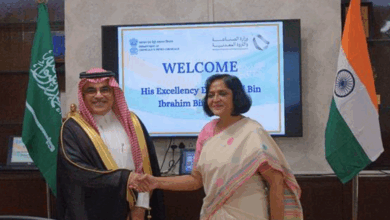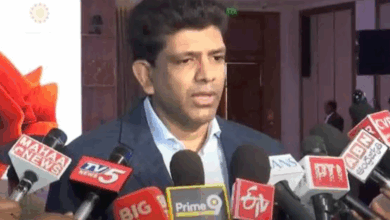Tribal Artisan Day celebrated at the Tribes India Aadi Mahotsav

This Aadi Mahotsav is an excellent way to bring all tribal artisans from across the country in a single place
It was a busy Sunday at the Aadi Mahotsav on at Dilli Haat as crowds thronged to enjoy a window into rich tribal arts and crafts. The main focus was the wide variety of tribal arts and handicrafts being showcased in the fortnight-long festival that celebrates the spirit of tribal crafts, culture, and cuisine.
With about 200 stalls from across India, the Aadi Mahotsav is a mini-India where the exquisite craft traditions of tribal artisans – weavers, potters, puppeteers, and embroiders – are all in one place. Visitors can take their pick from a wide range of artefacts like paintings be it in the Warli style or Patachitras; jewellery handcrafted in the Dokra style to bead necklaces from the Wancho and Konyak tribes of the North-East to the rich and vibrant textiles and silks, namely; from colourful puppets and children’s toys to traditional weaves such as Dongria shawls and Bodo weaves; iron craft from Bastar to bamboo craft and cane furniture; pottery such as blue pottery and the famed Longpi pottery.

The event also saw the visit by some senior dignitaries. Shri Bhaskar Khulbe, Advisor to the Prime Minister visited the Aadi Mahotsav and took a keen interest in the stalls and their wares, including the demo Van Dhan center installed. In particular, he was very interested in the stall where the 50 tribal GI products have been showcased. “I am pleased to note that TRIFED has actively taken up the cause to promote GI Tagged products and transform into a brand, thus empowering tribal artisans. This Aadi Mahotsav is an excellent way to bring all tribal artisans from across the country in a single place.” Shri Khulbe commented as he appreciated the stalls.
Ms. Anusuiya Uikey, the Governor of Chhattisgarh visited the Aadi Mahotsav earlier in the day and went to all the stalls, especially ones where Chhattisgarh art and handicrafts are on display. She was welcomed by Shri Ramesh Chand Meena, Chairman, TRIFED, and Shri Pravir Krishna, Managing Director, TRIFED. Speaking on the occasion, she commented, “I am very happy that TRIFED has taken this unique initiative which helps provide a wider exposure to the tribal artisans to the next level. I have been associated with TRIFED now for a while and it brings me joy to see Chhattisgarh art and artisans getting a prominent place here.”
Other senior officials who visited the Aadi Mahotsav on Sunday include DS Mishra, Secretary, Ministry of Housing and Urban Affairs, and Shri Nand Kumar Sai, Chairman, National Commission of Scheduled Tribes. The senior officials also viewed the evening’s cultural performances.
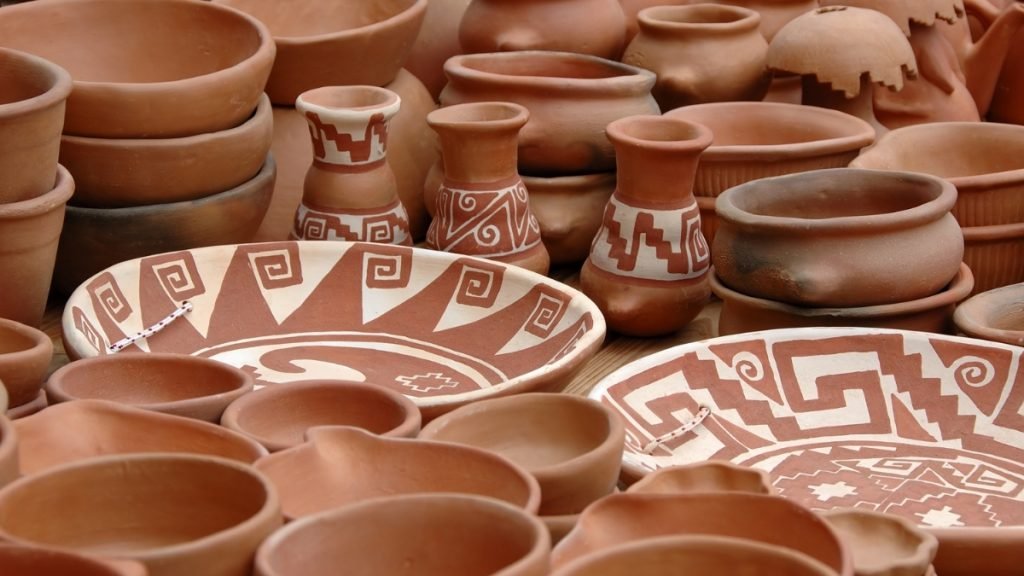
Besides shopping for handlooms and handicrafts and natural produce, one can also sample the best of tribal cuisine and enjoy performances by tribal artists at the Aadi Mahotsav.
The Aadi Mahotsav- A Celebration of the Spirit of Tribal Crafts, Culture, and Commerce is on at Dilli Haat, INA, New Delhi till the 15th February 2020 from 11 am to 9 pm.
Visit Aadi Mahotsav and further the “Vocal for Local” movement! #BuyTribal
The Aadi Mahotsav is an annual event that was started in 2017. The festival is an attempt to familiarise people with the rich and diverse craft, the culture of tribal communities across the country, in one place. However, due to the pandemic, the 2020 edition of the festival could not be held.
The festival features the exhibition-cum-sale of tribal handicrafts, art, paintings, fabric, jewelry, and much more through 200 stalls to showcase this. About 1000 tribal artisans and artists from across the country are participating in the festival.
Tribal Cooperative Marketing Development Federation of India (TRIFED) under the M/o Tribal Affairs, as the nodal agency working towards tribal empowerment, has been putting in place several initiatives that help in improving the income and livelihood of the tribal people, while preserving their way of life and tradition. The Aadi Mahotsav is one such initiative that helps enable the economic welfare of these communities and bring them closer to mainstream development.


